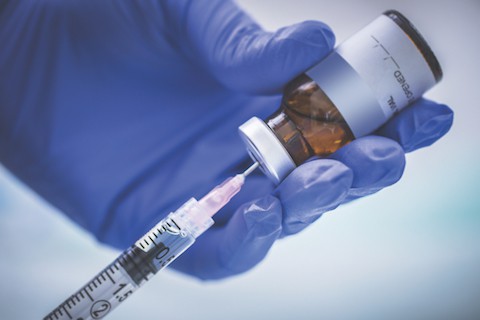
China-based vaccine specialist CanSino Biologics revealed that its COVID-19 vaccine has shown promise in a phase 2 study.
The vaccine, Ad5-nCOV, was tested in 508 healthy adult subjects aged 18 years or older, in a single centre in Wuhan, China. Both doses of the vaccine tested in the trial induced neutralising antibody responses to SARS-CoV-2, the virus which causes COVID-19. That includes 85% of participants producing antibodies for the novel coronavirus and a T-cell response within 14 days of receiving the injection.
The shot also appeared safe, although 72-74% of participants across both dosage groups reported adverse reactions. However, serious adverse reactions were less common, with only 9% in the 1×1011 viral particles dose group and one participant in the 5×1010 viral particles dose group experiencing a serious side effect.
While a handful of Western pharma and biotech companies, including AstraZeneca, Pfizer and Moderna, have steadily been releasing results from the first human trials of their respective COVID-19 vaccine candidates over the past month, CanSino revealed its first human trial data in May.
CanSino’s candidate uses a genetically modified human adenovirus – which causes the common cold – to carry the genetic code for SARS-CoV-2 proteins to the body. The technology is similar to that being used by AstraZeneca and Oxford University, although their vaccine candidate uses a modified chimpanzee adenovirus. The key difference, and potential disadvantage, in CanSino’s method is that many people could have existing adenovirus antibodies from previous infections, which could impact the efficacy of the vaccine.
This led to issues in the phase 1 trial which cropped up again in the phase 2 results. In the phase 2 trial, participants who had high levels of existing adenovirus antibodies did not produce the same levels of neutralising antibodies compared to those who did not have pre-existing adenovirus antibodies. “Pre-existing (immunity) is considered to be the biggest obstacle for the candidate…to overcome,” said the study authors in The Lancet.
Despite the concerns, the results are still promising overall, and support further testing of the vaccine in a phase 3 effectiveness trial. According to Reuters, CanSino is in discussions with a number of countries, including Russia, Brazil, Chile and Saudi Arabia, to launch a large-scale phase 3 trial testing its vaccine candidate, and is planning to recruit 40,000 participants to the study.




